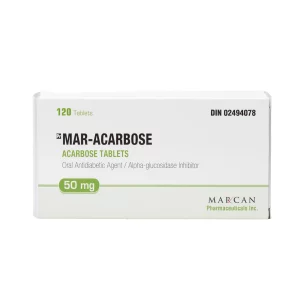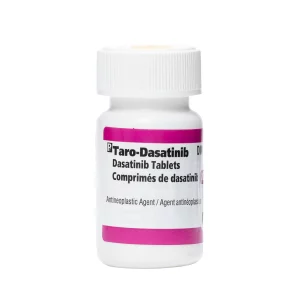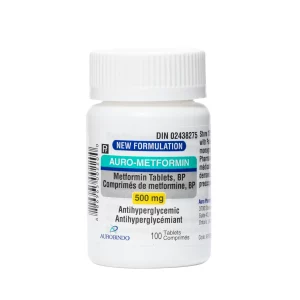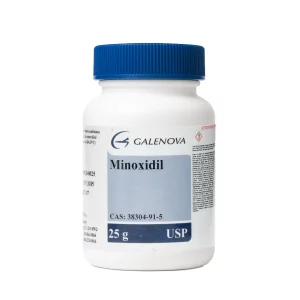Your cart is empty.
Your cart is empty.
Dasatinib is a tyrosine kinase inhibitor, a type of drug that blocks certain signals within cells. It was originally developed for cancer treatment but is now gaining attention in wellness communities for its potential senolytic and anti-aging benefits.
While dasatinib is mainly prescribed for leukemia, especially chronic myeloid leukemia (CML), there is growing interest in its off-label use for promoting longevity. Researchers and biohackers alike are exploring how it may help eliminate senescent cells, cells that have stopped dividing and may contribute to aging.
However, dasatinib dosage varies significantly depending on your goals. If you’re undergoing cancer therapy or using it in a wellness setting, your ideal dose should always be determined with medical supervision. This guide covers the basics of medical dosing, insights into dasatinib anti-aging dosage, and what we know about dasatinib senolytic dosage for healthy aging.
Dasatinib is a prescription medication that belongs to a class of drugs called tyrosine kinase inhibitors. These drugs work by stopping faulty signals inside cells that lead to uncontrolled growth.
Dasatinib was approved to treat specific types of leukemia, including:
It helps control these cancers by targeting and blocking proteins that tell cancer cells to grow. Dasatinib is typically only used under strict medical protocols when prescribed for cancer.
Recently, dasatinib has been studied for its potential in removing senescent cells, old or damaged cells that no longer divide. Removing these cells may improve health and slow aging, a concept attracting increasing attention in longevity circles.
When used to treat cancer, dasatinib dosing is much higher than in wellness applications.
These doses are customized based on patient tolerance, side effects, and how well the treatment is working. Medical professionals monitor patients regularly with blood tests and physical exams to ensure safe use.

Dasatinib’s role in anti-aging is based on its ability to clear senescent cells. These “zombie cells” can accumulate with age and potentially lead to inflammation and disease.
Small studies have explored combining dasatinib with quercetin, a plant flavonoid, to enhance its senolytic effects. This pairing may help improve markers of aging in older adults. Dasatinib vs Imatinib research shows dasatinib on its own also shows promise but may benefit from synergy with other compounds.
However, this use is still experimental. Dasatinib is not FDA-approved for aging or longevity, and most findings come from early research or biohacker experiences. This means medical oversight is essential when considering its off-label use or decisions to buy Dasatinib for anti-aging purposes.
Unlike cancer treatment, dasatinib anti-aging dosage involves lower and less frequent use.
Typical patterns include:
This pulsed method mimics early studies and reduces exposure, which may be safer for healthy individuals. It’s not a daily long-term treatment. The key idea is to induce senolytic activity without long-term suppression of healthy cells.
Even at low doses, it’s important to consult a healthcare provider. They can assess your health history and ensure dasatinib is safe for you and aligned with your wellness goals.
There’s no one-size-fits-all when it comes to dasatinib dosage. Many factors determine the right amount, including:
Some people need dose adjustments based on how their body processes the drug or interacts with other treatments, so keeping in touch with your chosen specialist is advised.

In the world of anti-aging, dasatinib is often paired with quercetin.
Why quercetin?
It’s believed to complement dasatinib by targeting different types of senescent cells. Together, they may create a more complete senolytic effect.
One common stack used by longevity enthusiasts includes:
Some practitioners offer protocols based on this pairing, although it remains off-label and experimental. Anecdotal feedback is positive, but more clinical data is needed.
Longevity users typically follow short-term regimens such as:
These pulses aim to eliminate senescent cells without continuous drug exposure. This strategy balances potential benefits with a reduced risk of side effects.
However, long-term safety data is limited. Because this use is not yet standardized, ongoing medical guidance is essential for responsible experimentation.
Before trying dasatinib for any reason, talk to a knowledgeable medical professional.
If you’re considering it for wellness or senolytics, ask your provider:
If your interest is in anti-aging or cancer therapy, professional support ensures safer, more effective results.
What is the typical dasatinib dosage for cancer?
Standard doses include 100 mg daily for CML in the chronic phase, or 140 mg for more advanced stages. These regimens are closely monitored by oncologists and often adjusted based on patient response and side effects. Always follow your oncologist’s guidance if you are using dasatinib as part of cancer treatment.
What is the dasatinib anti-aging dosage?
Generally, 5 mg to 10 mg taken for 2–3 days per month. This lower, intermittent dose is modeled after early clinical studies on senolytic therapies and should only be used with medical guidance. The goal is to limit side effects while maximizing senescent cell clearance.
Is dasatinib safe for anti-aging use?
Early studies show promise, but it’s not FDA-approved for this purpose. Potential side effects, such as immune suppression or blood abnormalities, mean it should never be self-administered. Risks may outweigh benefits without proper evaluation.
How is dasatinib taken for senolytic effects?
Often combined with quercetin and used in short bursts, such as weekend dosing every month or two. This pulse dosing is designed to minimize risks while maximizing the clearance of senescent cells. Consistency with spacing and dosage helps avoid toxicity.
Can I use dasatinib without a prescription?
No. Dasatinib is a prescription medication and should never be used without professional oversight. Unauthorized use may lead to serious health complications or legal risks. Always follow local laws and consult your chosen specialist.
How do I know what dose is right for me?
Only a licensed provider can evaluate your health and help you safely use dasatinib if appropriate. They may also recommend lab tests or other evaluations to tailor your protocol effectively. Personalized medicine is key with a drug this powerful.
Dasatinib is a powerful drug with proven benefits in cancer treatment and promising potential in the field of longevity. Whether you’re exploring its use under a doctor’s supervision for leukemia or considering its senolytic effects in an anti-aging protocol, the correct dasatinib dosage is essential.
While low-dose, pulsed regimens show early promise for reducing senescent cells, this use is still experimental. There are no universally accepted guidelines for dasatinib in wellness applications, which makes personalized medical advice more important than ever.
If you’re serious about using dasatinib to support your healthspan or lifespan, partner with a knowledgeable healthcare provider who understands the latest research. Together, you can make informed decisions that are both safe and evidence-based.


Acarbose blocks carbohydrate breakdown in the small intestine, preventing rapid glucose absorption spikes.

Dasatinib eliminates senescent cells through selective apoptosis, clearing age-damaged tissues from the body.

Metformin inhibits hepatic glucose production while enhancing insulin sensitivity, offering cost-effective Type 2 diabetes management.

Minoxidil dilates scalp blood vessels, increasing nutrient delivery to hair follicles while extending the anagen growth phase duration.
Unlock savings on bundles and elevate your online experience today!